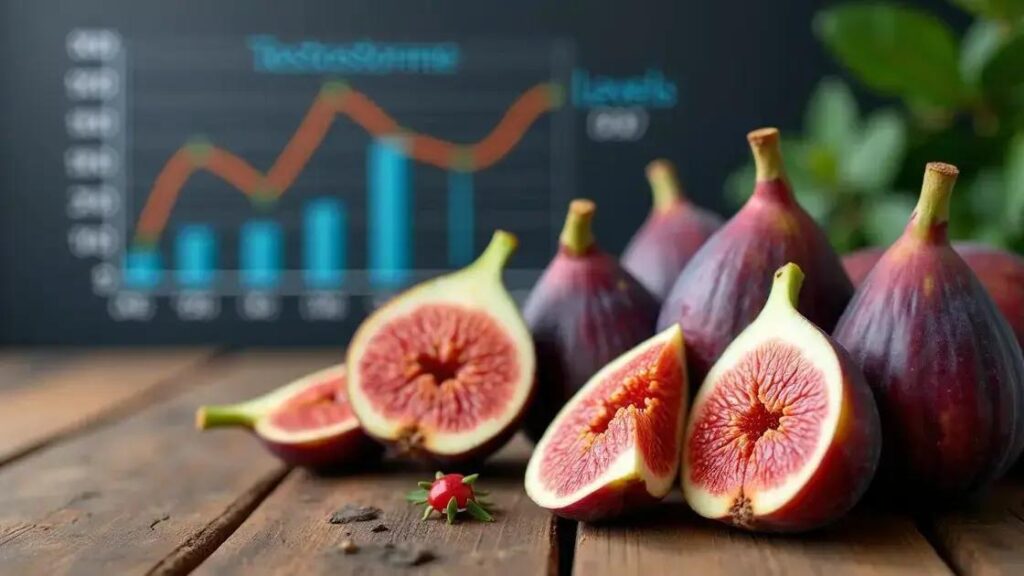The connection between figs and testosterone production highlights that figs are rich in nutrients, antioxidants, and phytoestrogens, which may enhance hormone balance and support testosterone levels. Eating figs regularly, along with other testosterone-boosting foods like oysters and leafy greens, can contribute to overall hormonal health.
Figs are not just a sweet treat; they hold significant potential in the realm of testosterone production. This unique fruit is packed with vitamins, minerals, and antioxidants that may support hormone health. In this article, we will delve into the connection between figs and testosterone production. You’ll discover the nutritional benefits of figs, the science behind their effect on hormones, and practical tips for incorporating them into your daily diet.
Understanding Testosterone and Its Importance
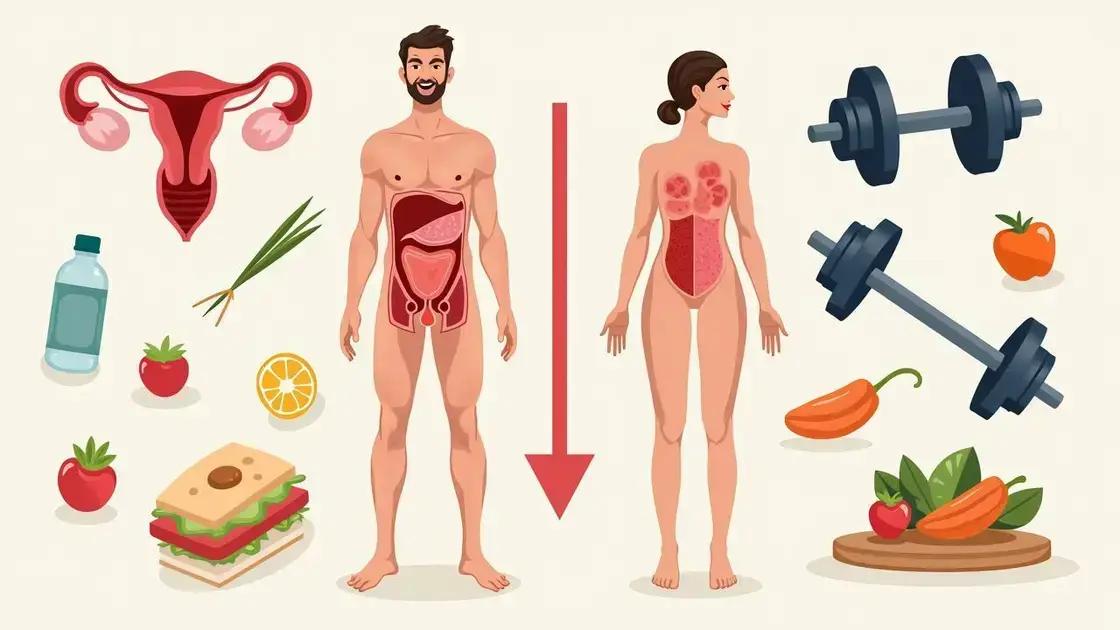
Testosterone is a crucial hormone that plays a significant role in various bodily functions. It is primarily produced in the testes for men and, to a lesser extent, in the ovaries for women. This hormone is essential for muscle growth, bone density, fat distribution, and overall sexual health.
Why Testosterone Matters
Maintaining a healthy level of testosterone is important for both physical and mental well-being. In men, low testosterone levels can lead to various health issues, including fatigue, depression, and decreased libido. For women, hormonal balance is vital for reproductive health and overall vitality.
Physical Benefits
Testosterone contributes to muscle development and strength. Higher levels enable better physical performance and recovery after exercise. It also helps maintain a healthy metabolism, which is essential for weight management.
Mental and Emotional Health
Beyond physical benefits, testosterone impacts mood and cognitive functions. Low testosterone levels have been linked to mood swings, irritability, and even difficulties in concentration. Thus, maintaining balanced testosterone levels is vital for mental health.
Age and Testosterone Levels
It’s natural for testosterone levels to decline with age. Men can experience a gradual decrease starting in their late 30s, while women may notice fluctuations during hormonal changes such as menopause. Recognizing these changes can help in seeking appropriate lifestyle adjustments or interventions.
Understanding testosterone and its importance sheds light on the various factors that can influence hormone levels, including diet, exercise, and lifestyle choices. This knowledge is crucial for anyone seeking to improve their overall health.
Nutritional Benefits of Figs
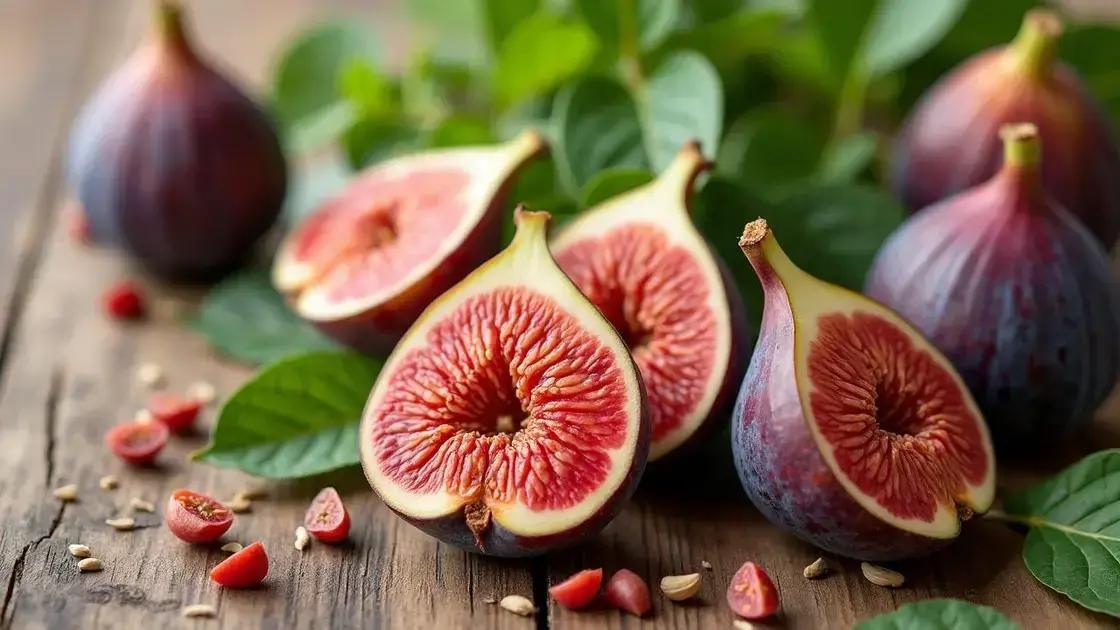
Figs are not only delicious but also a nutritional powerhouse. They are rich in essential nutrients such as vitamins, minerals, and dietary fiber, making them a great addition to any diet.
Rich in Vitamins and Minerals
Figs are a good source of important vitamins including vitamin A, vitamin K, and several B vitamins. They also contain essential minerals like potassium, magnesium, and calcium. Potassium helps regulate blood pressure and fluid balance, while magnesium is important for muscle and nerve function.
High in Dietary Fiber
One of the standout nutritional benefits of figs is their high fiber content. Fiber is essential for digestive health, as it helps maintain regular bowel movements and prevent constipation. A diet high in fiber can also support heart health by lowering cholesterol levels and controlling blood sugar.
Antioxidant Properties
Figs are packed with antioxidants, which help protect the body from oxidative stress caused by free radicals. These antioxidants include phenolic compounds that may reduce inflammation and lower the risk of chronic diseases. Consuming figs regularly can aid in overall health and well-being.
Natural Sweetener
With their natural sweetness, figs can be a healthier alternative to refined sugars in recipes. Whether eaten fresh or dried, they provide a nutritious and tasty way to satisfy sweet cravings while benefiting from their vitamins and minerals.
Supports Hormonal Balance
The nutritional benefits of figs align with their role in supporting hormonal balance. Vitamins and minerals found in figs contribute to overall hormone health, potentially promoting testosterone production and enhancing well-being.
The Science Behind Figs and Hormone Production
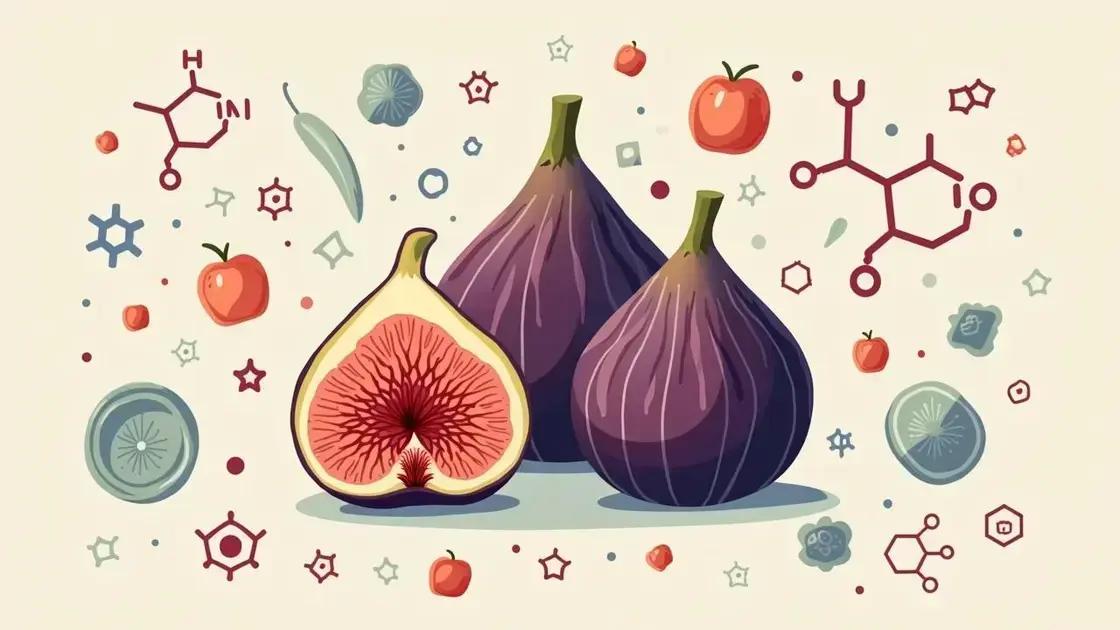
Figs possess unique properties that may influence hormone production, particularly testosterone. Understanding the science behind figs can illuminate their role in health and hormone balance.
Phytoestrogens in Figs
Figs contain phytoestrogens, which are plant compounds that mimic estrogen in the body. While they are not testosterone, they can help balance hormones. An appropriate balance of estrogen and testosterone is critical for overall health in both men and women.
Vitamins and Minerals for Hormone Synthesis
Figs are rich in vitamins and minerals essential for hormone production. For example, vitamin B6 plays a role in the synthesis of neurotransmitters and hormones. Magnesium and zinc are both important for the production and regulation of testosterone. Including figs in the diet can support adequate intake of these nutrients.
Antioxidants and Inflammation
The antioxidants found in figs, such as polyphenols, can reduce inflammation in the body. Chronic inflammation can negatively affect hormone levels, including testosterone. By helping to lower inflammation, figs may contribute to more stable hormone levels.
Fiber and Gut Health
A high-fiber diet supports gut health, which is crucial for overall hormone balance. The fiber in figs aids digestion and helps maintain a healthy gut microbiome. A well-functioning gut can help regulate hormones more effectively.
Natural Sweetness and Dietary Choices
Incorporating figs into the diet as a natural sweetener can reduce the intake of refined sugars. High sugar consumption can lead to hormonal imbalances and increased fat storage, which can further disrupt hormone levels. Choosing figs instead may promote better hormonal health.
How to Incorporate Figs into Your Diet

Incorporating figs into your diet can be easy and delicious. Here are some simple ways to enjoy this nutritious fruit:
1. Fresh Figs as a Snack
Fresh figs make a tasty and healthy snack. Just wash them thoroughly and enjoy them whole. Their natural sweetness makes them a perfect alternative to candy.
2. Add Figs to Salads
For a nutritious boost, slice fresh figs and add them to your favorite salads. They pair well with greens, nuts, and cheese, adding a delightful flavor and texture.
3. Use Dried Figs in Recipes
Dried figs are a versatile ingredient. They can be chopped and added to oatmeal, yogurt, or baking recipes. You can also include them in energy bars or granola for extra sweetness and fiber.
4. Create Fig Jam or Chutney
Making fig jam or chutney is another great way to enjoy figs. Spread it on toast or serve it alongside meats and cheeses for a unique flavor experience.
5. Pair Figs with Cheese
Figs go wonderfully with cheese. Create a cheese platter by pairing figs with varieties like goat cheese, brie, or gorgonzola. This makes for a delightful appetizer.
6. Use Figs in Smoothies
Add fresh or dried figs to your smoothies for a sweet and creamy texture. They blend well with other fruits and greens, contributing to a nutrient-packed drink.
7. Cook with Figs
Figs can also be used in savory dishes. Consider adding them to braised dishes, pizzas, or in sauces for meats. Their sweetness can balance out rich flavors.
Other Foods That Boost Testosterone
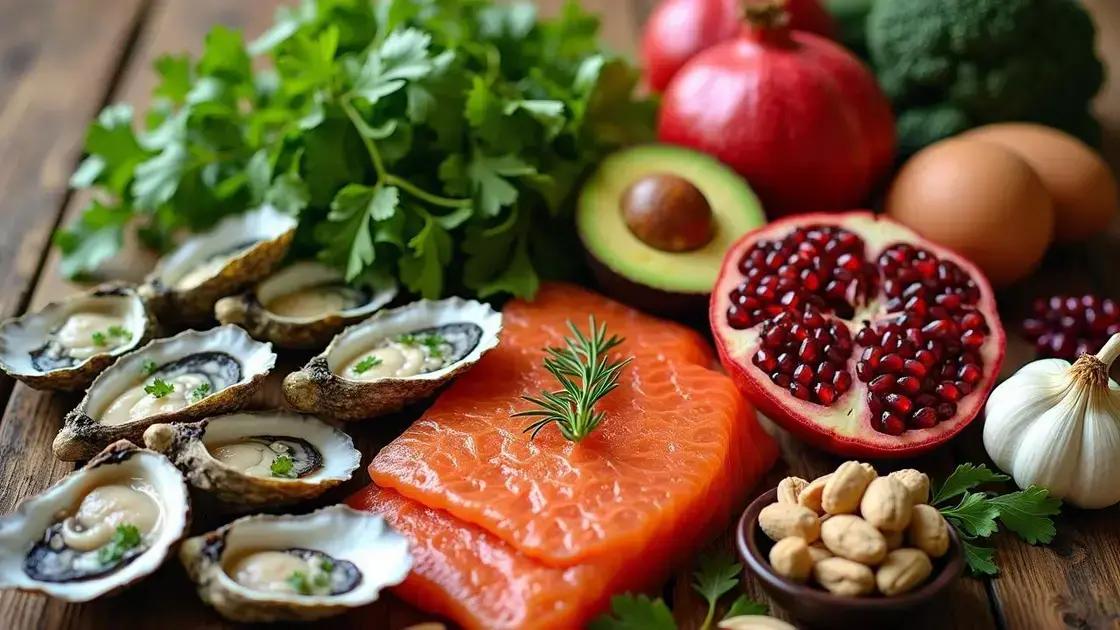
Several foods can help boost testosterone levels naturally. Here are some of the most effective options:
1. Oysters
Oysters are renowned for their high zinc content. Zinc is essential for testosterone production and can enhance libido. Including oysters in your diet could significantly support hormone health.
2. Leafy Greens
Vegetables like spinach and Swiss chard are rich in magnesium. Magnesium has been linked to higher testosterone levels. Incorporating these greens into meals can promote better hormone balance.
3. Fatty Fish
Fatty fish, such as salmon and mackerel, are high in omega-3 fatty acids. These healthy fats are not only good for heart health but also play a role in hormone production.
4. Eggs
Eggs are an excellent source of protein and cholesterol, which are vital for the production of testosterone. Eating whole eggs can provide the building blocks your body needs for hormone synthesis.
5. Pomegranates
Rich in antioxidants, pomegranates may help improve testosterone levels and enhance mood. Drinking pomegranate juice or eating the seeds can be beneficial for overall health.
6. Avocados
Avocados contain healthy fats and vitamins that support hormone production. They are particularly rich in vitamin E, which has been linked to increased testosterone levels.
7. Nuts
Nuts like almonds and walnuts are high in omega-3s and zinc. Regularly snacking on nuts can provide important nutrients that promote healthy testosterone levels.
8. Garlic
Garlic contains allicin, a compound that may help lower cortisol levels. Lower cortisol can allow testosterone levels to rise. Adding garlic to your meals can support hormonal health.
Embracing Figs and Hormonal Health
Figs are more than just a delicious fruit; they play an important role in supporting testosterone production and overall hormonal health. By understanding the connection between figs and hormones, we can appreciate their nutritional benefits and how to incorporate them into our daily diets.
In addition to figs, various other foods can enhance testosterone levels, offering a diverse range of options for those looking to improve their health. Foods such as oysters, leafy greens, fatty fish, eggs, and nuts provide essential nutrients that contribute to hormone balance.
By including these foods into your diet, you can boost your testosterone levels naturally, thus promoting better health and well-being. Remember, a balanced diet is key to achieving hormonal balance and improving quality of life.
FAQ – Questions About Figs and Testosterone Production
How do figs help in boosting testosterone levels?
Figs are rich in vitamins, minerals, and antioxidants that support hormonal balance. Their phytoestrogens may help enhance testosterone production.
What are the nutritional benefits of figs?
Figs are high in dietary fiber, vitamins, and minerals like potassium and magnesium, which are essential for overall health, including hormone production.
Can I eat figs every day?
Yes, incorporating figs into your daily diet can be beneficial. Enjoy them as a snack, in salads, or in various dishes.
What other foods boost testosterone levels?
Other testosterone-boosting foods include oysters, fatty fish, eggs, leafy greens, and nuts, which provide essential nutrients for hormone health.
How can I incorporate figs into my meals?
You can add figs to salads, smoothies, yogurt, or even use them in baking. They pair well with cheese and can be used in savory dishes.
Are dried figs as nutritious as fresh figs?
Dried figs are still nutritious but have a higher sugar concentration. They are a great source of fiber and can be used in many recipes.

